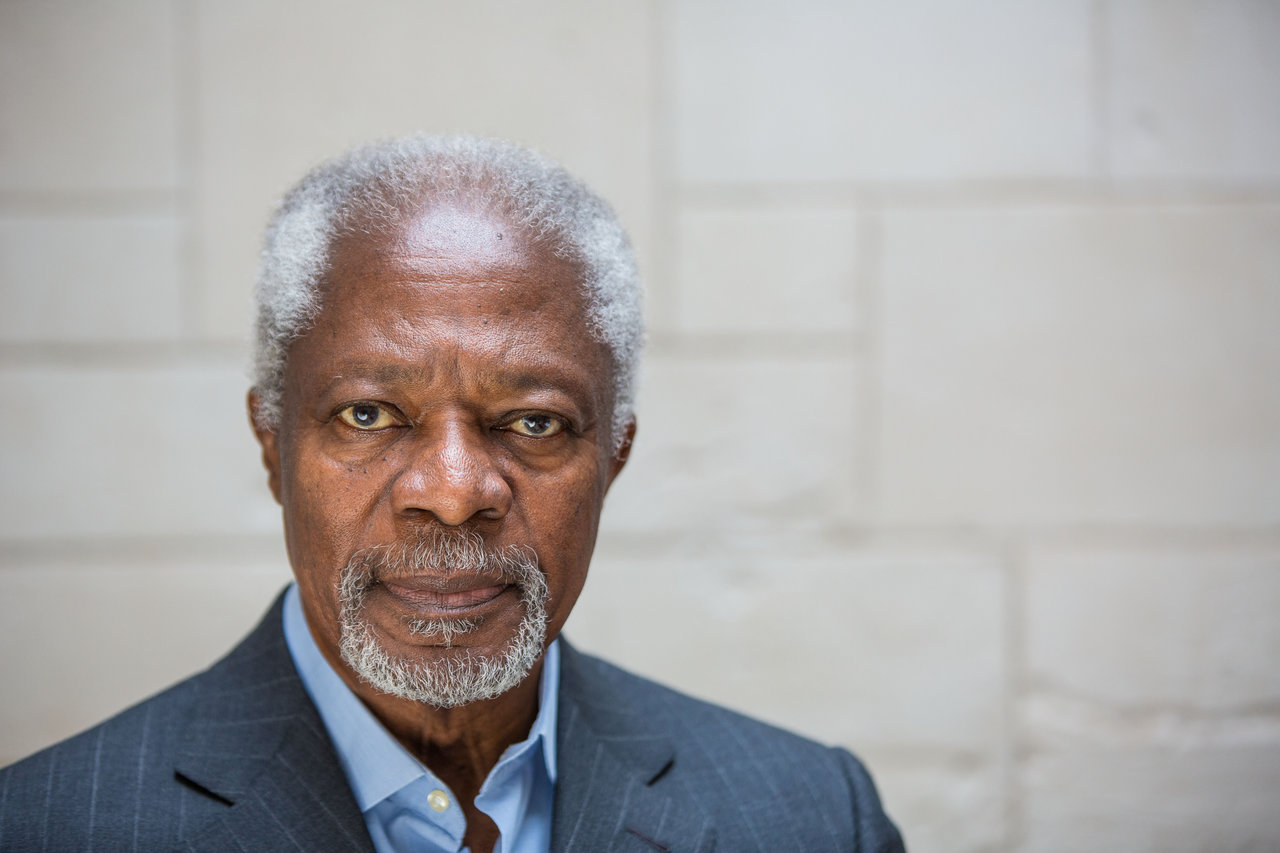Statement: “Feeding Africa”
Statement by Kofi Annan on behalf of The Africa Progress Panel during the African Development Bank High-level conference on “Feeding Africa”.
Excellencies, Distinguished Guests, Ladies and Gentlemen, let me start by saying how much I would have liked to be with you all today as you discuss an issue that is close to my heart: agriculture in Africa. Unfortunately, other prior commitments have prevented my participation.
Africa is a potential global agriculture powerhouse.
The continent is blessed with 60 per cent of the world’s uncultivated arable land and could grow enough food, not only to meet its own needs, but to export surpluses.
Yet hundreds of millions go hungry every day. And every year, Africa spends around $35 billion on importing food.
Africa’s farmers – a majority of whom are women – have an unrivalled capacity for resilience and innovation. But they have suffered from neglect, chronic underinvestment and regional protectionism.
Few of the world’s farmers are as poorly served by infrastructure, financial systems, scientific innovation or access to markets. The results are reflected in low levels of productivity: cereals yields are well under half the world average.
And few of the world’s people are as vulnerable to the effects of climate change as Africa’s farmers.
That’s why it’s crucial for the global community to reach an effective climate agreement that limits greenhouse gas emissions and strengthens the resilience of African farmers and communities.
In a recent report, Grain Fish Money: Financing Africa’s Green and Blue Revolutions the Africa Progress Panel, which I chair, states clearly that African farmers hold the future prosperity of the continent in their hands.
The continent’s population is expected to double by 2050, and will triple by the end of the century.
To realize Africa’s agricultural potential, African governments urgently need to put in place policies that increase public and private investment in agriculture, inspire technology and innovation, and reduce risk – especially climate risk.
It is notable that two of the fastest-growing countries in recent years, Ethiopia and Rwanda, have achieved significant economic growth through agriculture, marking out a path for other African countries to follow.
Yet some countries on our continent have still to fulfil their pledge of investing the 10 per cent or more of national budgets to agriculture.
More effort must also be made to improve regional trade in agricultural products. If a farmer cannot sell his or her produce in the next country, it is much harder to develop a profitable business.
At the same time, developed countries must remove unfair trade barriers and eliminate harmful agricultural export subsidies.
Ladies and gentlemen,
The business community also has a crucial role to play.
That’s why my Foundation recently launched a new initiative, which brings together leaders from the private sector, philanthropy, and global food agencies, to strengthen the productive capacity of Africa’s smallholders.
Through technology, the private sector can also play a vital role in creating a new food system suited to contemporary needs. Mobile communications, for example, can end the profound isolation of the vast majority of smallholder farmers, which is a primary obstacle to progress.
Ladies and Gentlemen,
There must now be a greater emphasis on climate-smart agriculture to enable farmers to adapt to changing weather patterns and growing seasons that threaten food production.
Climate-smart solutions – such as the use of drought- and heat-tolerant crops and improved irrigation systems – are critical for food and nutrition security, farming resilience, and higher productivity.
Ultimately, leaders are accountable to their citizens for the decisions they take.
Yet what is possible in Africa will also be determined in part by the actions – or the inaction – of the international community.
Ladies and Gentlemen,
It is exciting to see recently that world leaders have adopted the Sustainable Development Goals to shift the world onto a resilient path based on the three dimensions of sustainable development: economic, social and environmental.
But unless action is taken on climate change, sustainable development will not be achieved.
At the UN Climate Change Conference in Paris in December, governments have to conclude a fair, universal and binding climate agreement, by which every country commits to reducing emissions of greenhouse gases.
Fairness demands that wealthier countries take the lead.
They must provide financial resources and technologies to help poorer countries adapt to the impacts of climate change, and cut emissions by making a transition to a low-carbon future.
Specifically, developed countries must deliver on their commitment to mobilise $100 billion annually for the Green Climate Fund.
Ladies and Gentlemen,
This is an ambitious agenda.
To succeed I believe that we shall need to move quickly on three fronts.
First, we must encourage and assist Africa to shift towards an inclusive, low-carbon future that supports agriculture.
Second, we should recognize and invest in the incredible potential of African agriculture and Africa’s farmers.
And finally, we have to secure a global consensus on emissions control at the forthcoming climate conference in Paris without which Africa’s prospects will be greatly diminished.
Africa’s resilience and creativity are enormous. We have a rising and energetic youth population. Our dynamic entrepreneurs are using technology to transform people’s lives. Let’s support and encourage them.
Thank you.

